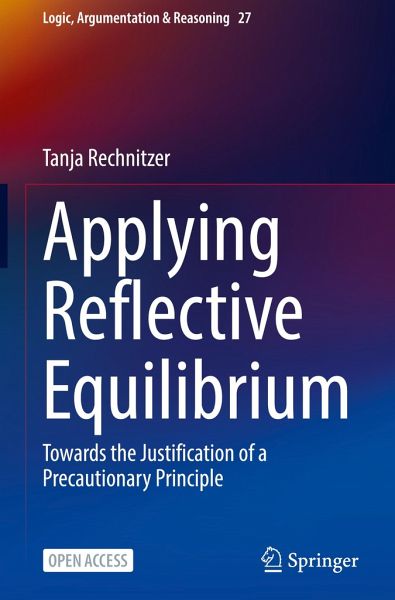
Applying Reflective Equilibrium
Towards the Justification of a Precautionary Principle

PAYBACK Punkte
0 °P sammeln!
This open access book provides the first explicit case study for an application of the method of reflective equilibrium (RE), using it to develop and defend a precautionary principle. It thereby makes an important and original contribution to questions of philosophical method and methodology. The book shows step-by-step how RE is applied, and develops a methodological framework which will be useful for everyone who wishes to use reflective equilibrium. With respect to precautionary principles, the book demonstrates how a rights-based precautionary principle can be constructed and defended.The ...
This open access book provides the first explicit case study for an application of the method of reflective equilibrium (RE), using it to develop and defend a precautionary principle. It thereby makes an important and original contribution to questions of philosophical method and methodology. The book shows step-by-step how RE is applied, and develops a methodological framework which will be useful for everyone who wishes to use reflective equilibrium. With respect to precautionary principles, the book demonstrates how a rights-based precautionary principle can be constructed and defended.
The case study succeeds in demonstrating that RE can be successfully applied and puts real constraints on the justification process. This is all the more remarkable as the case study was designed as an open-ended process, without presupposing any specific results. This book will be highly relevant both to people interested in philosophical methodology and epistemology, as well as to researchers who are interested in using philosophical methods and tools and applying them to practical problems.
The case study succeeds in demonstrating that RE can be successfully applied and puts real constraints on the justification process. This is all the more remarkable as the case study was designed as an open-ended process, without presupposing any specific results. This book will be highly relevant both to people interested in philosophical methodology and epistemology, as well as to researchers who are interested in using philosophical methods and tools and applying them to practical problems.














